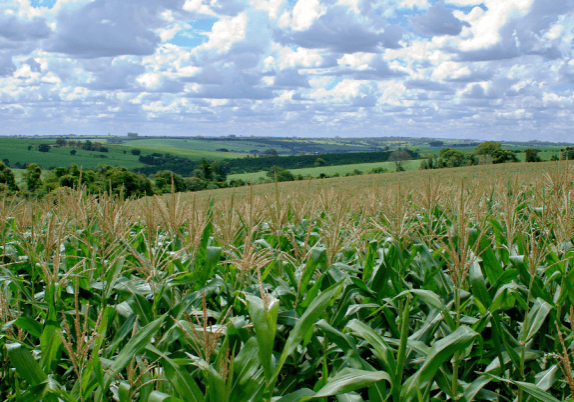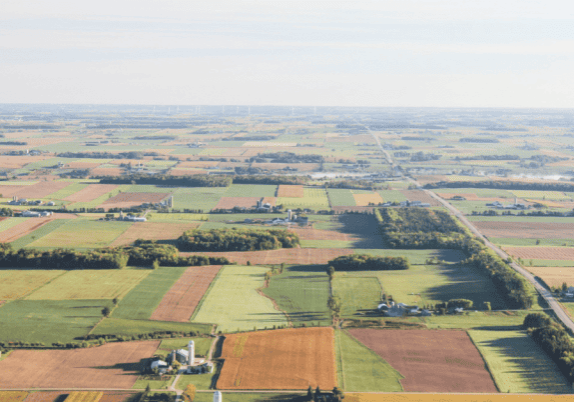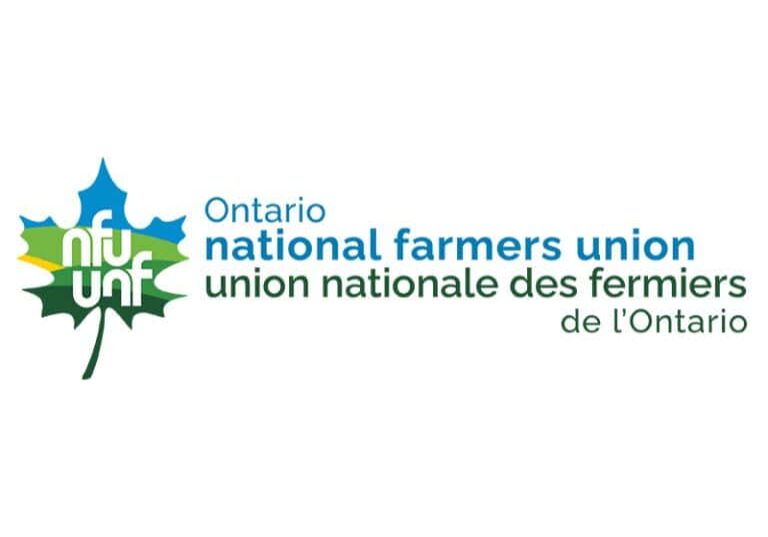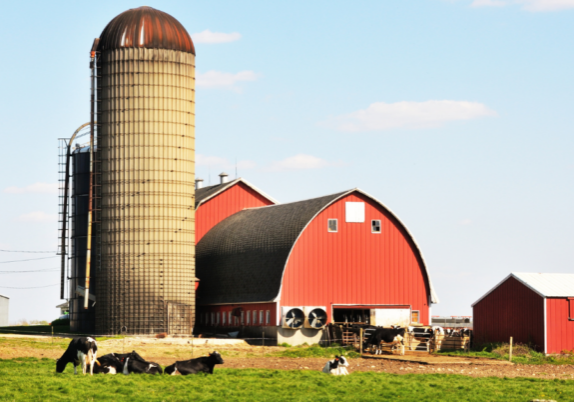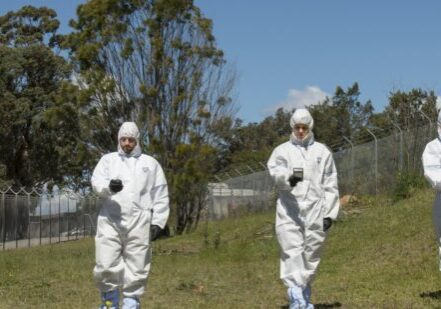Key Agricultural Election Issues 2022

Questions submitted by the National Farmers Union – Ontario (NFU-O)
The NFU-O is an accredited farm organization whose members work together to advocate for policies that maintain small and medium sized family farms as the primary food-producers in Canada. The NFU-O collaborates locally, nationally, and internationally to research, educate, and share effective solutions that lead to a better world for farm families and their communities.
In light of the upcoming election, the NFU-O reached out to parties to ask their opinion on key agricultural issues. Below are the responses we received, from the Conservative Party of Ontario (CON) and the Green Party of Ontario (GRN).
(1) The average age of a farmer in Canada is 55 years old and, according to Statistics Canada, less than 10% of farmers have a succession plan in place, preventing the continuance of many viable farm businesses. Meanwhile farmland prices, particularly in southwestern Ontario, pose significant economic barriers to new & young farmers. Economic barriers are exacerbated for people based on their gender, race, religion, etc. Government policies, or lack thereof, have not assisted either succession-planners or new & young farmers seeking land. Without real public policy, the government-fueled trend to larger farm operations, as well as farmland being purchased by non-farm speculative sources, is a threat to Canadian food sovereignty.
What are the 3 most significant measures that your party is prepared to enact that will ensure access and ownership of the land for the next generation of food producers?
CON: Investing in the next generation of leaders has been a priority for our government. This is why we invested $1.4 million in partnership with the government of Canada in the 4-H Ontario program to inspire future leaders to explore meaningful careers in the food and farming sector.
GRN: Ontario Greens plan to protect valuable productive farmland, to ensure access for the next generation of food producers. The 3 most significant measures we would enact to ensure access and ownership of the land for food producers include:
– Permanently protecting prime farmland from being lost to non-agricultural use, such as urban sprawl, highways, and gravel mining
– Purchasing available farmland and placing it in protected Land Trusts, so that it can be made available to new farmers who would not otherwise be able to afford farmland
– Ensuring policies favour the retention of family-owned farms, farming by experienced farmers among new Canadians, and the succession of farms to a younger generation of farmers
(2) The NFU-O’s 2021 Farm Labour Project found that Ontario’s small to mid-sized farms are robust agricultural job creators. In fact, we discovered that farms under 70 acres were more likely to be employing Ontarians than their larger counterparts. These modest farms are also the knowledge incubators for the next generation of farmers. Unfortunately, these farm operators are burdened with a farm income crisis at the same time as they are finding it increasingly difficult to secure local labour. Supporting small and mid-sized farm hiring, training, and retention practices is vital to resolving the skilled-labour shortage in the agricultural sector. However, partial exemptions under Ontario labour law have excluded agricultural workers from minimum wage laws and other key labour protections. Under these sub-standard labour conditions it is no wonder why many Ontarians are reluctant to perform highly skilled, physically demanding, low-paid agricultural work.
What are the key actions that your party is prepared to develop to tackle the twin problems of the farm income and the living-wage farm labour crises?
CON: The government of Ontario in partnership with the government of Canada invested $4 million to address the chronic labour shortages that the agri-food sector is dealing with to help build a competitive workforce that will ensure the people of Ontario can continue to access safe and healthy food made in Ontario.
In addition, the province’s Rural Economic Development program has helped build rural Ontario by investing in projects to support rural and Indigenous communities with marketing and outreach campaigns to grow rural Ontario’s workforce, connecting youth and apprentices to job opportunities and creating innovation hubs and youth centers to foster innovation.
GRN: Actions Ontario Greens would take to address these problems include:
Farm income:
– Ensuring the Federal-Provincial-Territorial grocery retail code of conduct initiative is created so that it is mandatory, enforceable, transparent, and benefits both customers and farmers
– Increasing investments in the Risk Management Program to meet or exceed the previous 85% coverage to improve financial security for farmers
– Eliminating property tax penalties for farmers with small-scale, value-added production facilities on farms
– Setting measurable, made-in-Ontario food purchasing targets for all public institutions to support local farmers.
– Paying farmers for programs that produce, enhance and maintain ecosystem services leading to cleaner water and air, habitat, carbon sequestration and climate resiliency on agricultural lands (e.g. ALUS).
Farm labour:
– Increasing the floor of the minimum wage each year by $1, starting at $16 in 2022, with a top-up in cities where the cost of living is higher.
– Providing all workers with full and equal access to employment benefit programs like EI, CPP, WSIB, and equal pay for equal work. All workers would have access, regardless of employment status (i.e. permanent, part-time, casual, temporary)
– Providing education and grant opportunities to encourage students to enter into the agri-food business
(3) Urban sprawl, fueled by non-farm speculative acquisition, presents a clear threat for the protection of prime agricultural farmland. The NFU-O is a strong proponent of an approach that would see the implementation of firm urban boundaries that direct all urban growth inward, and emphasis placed on the permanent protection of farmland for agriculture. Environmental protection and food sovereignty, not developer driven growth, should be the defining driving force. Rather than removing “red tape” to spur development, substantive community consultation is required.
What is your party’s plan to protect farmland, effectively end urban sprawl (including the building of more highways), rejuvenate existing communities, and protect forest, water, and farmland in Ontario?
CON: The $1 million annual investment that we made to promote locally grown food has helped to ensure there is as demand for the products that it supports. We will also continue to invest in important rural infrastructure including roads to help farmers get their products to market. As we continue to build an Ontario that puts people first, including those living in rural Ontario, the investments made for reliable broadband and cellular service is something that the people of Ontario expect and deserve. The Ontario government has committed nearly $4 billion in broadband infrastructure in every region of the province by the end of 2025. This is the single largest investment in high-speed internet, in any province, by any government in Canadian history.
GRN: Ontario Greens are committed to ending urban sprawl, creating connected communities throughout the province, and protecting our natural ecosystems. We would:
– Freeze urban boundaries immediately and end urban sprawl
– Move class 1 and 2 soils from the Whitebelt to the Greenbelt
– Permanently protect prime farmland from being lost to non-agricultural use, such as urban sprawl, highways, and gravel mining
– Require that intensification targets are met with distributed density throughout urbanised areas.
– Double the size of the Greenbelt to include a ‘Bluebelt’ of protected moraines, river systems, and watersheds
– Protect at least 25% of lands and water in Ontario by 2025 and 30% by 2030, including permanently protecting wetlands, prime farmland, Areas of Natural and Scientific Interest, and Provincial Wildlife Areas on crown land
– Reward sustainable forestry and land management practices
– Implement a plan for cutting phosphorus entering Lake Simcoe, and support the creation of a phosphorus recycling facility
– Restore a robust environmental assessment process and reverse changes that allow for assessments to be “streamlined.”
– Rapidly repeal all recent changes that limited Conservation Authorities’ authority and provide stable funding mechanisms so Conservation Authorities can fulfil their mandates, including watershed level protections.
– Reverse changes in Bill 245 that merged all land use planning tribunals, including the Environmental Review Board, into the Ontario Land Tribunal, and reverse damaging changes to the Local Planning Appeal Tribunal (LPAT).
(4) The Ontario Local Foods Act (2013) was designed to foster successful and resilient local food economies by encouraging the development of new markets for local food and increasing consumer awareness of local food in Ontario. In the nearly 10 years since the Act came into effect, the Ontario government has habitually violated the tenets of the Local Foods Act through inaction, complacency, and regulatory circumvention. The results of which has farmers today witnessing a continual loss of prime farmland, the rise of land prices beyond the productive capacity of farmland, and trade policy that continues to favour large agribusinesses rather than small and mid-sized family farms.
What is your party prepared to do to honour the tenets of the Ontario Local Foods Act, and make it relevant to agriculture in Ontario going forward?
CON: The Local Food Act has benefited the people of Ontario by helping make the connection between buying local food and supporting the province’s local food economy. It has also brought attention to the important contributions that the agri-food sector made to our economy.
In March, Ontario held a Summit on Food Security to collaborate with industry leaders to share strategies to ensure that Ontario’s food supply chain remains one of the strongest and safest in the world. The Summit builds on the province’s work to take action on investing in processing capacity, labour initiatives, innovation and research.
The Ontario government led by the Ontario PCs also invested $1 million annual to promote locally grown food, making it easier to buy made-in-Ontario food. For almost 45 years, Foodland Ontario has partnered with agri-food organizations to help promote and encourage purchasing local food. This was part of a targeted, cost-share funding through the Grassroots Growth initiative that offers funding to provincial agri-food producer organizations to successfully deliver direct to consumer marketing initiatives.
GRN: Ontario Greens would support local sustainable farming, and increase opportunities and support for local, nutritious food. This would be accomplished by:
– Setting measurable, made-in-Ontario food purchasing targets for all public institutions
– Providing tax incentives for local food and beverage manufacturers who purchase inputs grown by local farmers
– Providing start-up funding and land for community-owned local food markets, community gardens, and rooftop growing spaces
– Treating surplus food as a valuable resource, using it first to feed people, then animals
– Introducing a nutritious school lunch program for the public school system, with an emphasis on healthy, locally grown foods
– Providing tax incentives for local food and beverage manufacturers who purchase inputs grown by local farmers.
– Creating policies that support the retention of family-owned farms, farming by experienced farmers among new Canadians, and the succession of farms to a younger generation of farmers.
– Allowing Ontario’s craft spirits, brewers, and wine producers to open independent, off-site stores and boutique retail outlets; improve the distribution network to work for small businesses; and allow access for hospitality to purchase from these suppliers at a wholesale price of up to 20%
(5) Extreme weather events, like the drought conditions in northern Ontario and across the Prairies in 2021, have created significant hardships for food producers. Climate-changing human activities have necessitated actions to improve the environmental sustainability of our food production system. Food producers have not received fair societal support, nor recognition, for their role and potential to improve our collective environment.
What are the key initiatives that your party is prepared to take to empower food producers to engage in an effective environmental stewardship plan for Ontario that protects food production capacity and provides true net financial support?
CON: During the 2021 drought, Ontario’s agriculture minister visited the affected areas and provided financial support to northwestern farmers dealing with drought.
We will continue to support Ontario’s Business Risk Management programs to help farmers manage risk out of their control, including fluctuating costs and marketing prices. We will also continue to support Agricrop a crown agency that delivers important services including crop insurance programs to farmers.
Investing in agri-food research has been a priority of a government led by the Ontario PCs. We have continued our Ontario Agri-Food Innovation Alliance partnership with the University of Guelph which has conducted important research in many areas including environment and climate change.
GRN: Encouraging effective environmental stewardship in Ontario is essential to ensure the sustainability of our food production systems. Our plans include:
– Passing the Organic Products Act to regulate the use of the term “organic” within Ontario
– Protecting farmers against losses for up to ten years as they transition from chemical agriculture to soil-health agriculture
– Shifting program funding from supporting industrial and intensive animal agriculture to supporting soil health and regenerative agriculture
– Paying farmers for programs that produce, enhance, and maintain ecosystem services that contribute to cleaner water and air, habitat protection, carbon sequestration and climate resiliency on agricultural lands
– Rebuilding agricultural extension programs and hiring soil-health focused agronomists
– Promoting training in specialty programs that focus on sustainable practices and soil-health within agricultural schools
– Incentivizing on-farm composting of agricultural waste that results in biogas recovery
– Investing in research and innovation that improves the sustainability of our food production
– Investing in an Organic Growth Strategy, to support transition, small-scale certification, access to organic advisors and capital, expansion of organic research programs, and increased promotion of Ontario’s organic products
– Treating surplus food as a valuable resource. First, use it to feed people, then animals, and never send it to landfill.
– Banning the routine use of unnecessary antibiotics in healthy animals
(6) Projecting your party positions, what does Ontario food production look like in 10 years: who owns the land; who are the people farming it; who controls the offerings for food choice; and what immediate changes will your party pursue to bring about your party’s vision?
CON: Our party will continue to work with stakeholders including, the National Farmers Union of Ontario to listen to their concerns and develop policy that benefits the health of the Ontario agri-food sector and the people of Ontario.
GRN: By implementing our plans for food production in Ontario, the GPO hopes to create a system where:
– Farmers have access to family-owned land or through protected Land Trusts that purchase land fairly. We want to ensure family-owned farms are retained by families, and new Canadians with farming experience, as well as new generations of farmers, are able to purchase farmland affordably
– Healthy soil and farmland is deeply valued and protected for future generations
– Farm workers are able to support themselves through a combination of improved training and education, a guaranteed living wage and access to employment benefits, and a universal basic income program
– Local, sustainable food production is emphasized, with increased support for Organic farming, including training, grants and research.
– We continue to enhance the supply management system to include more farm products and ensure offsets or grants for those looking to enter the system or with a lower ability to produce.
– We ensure the Federal-Provincial-Territorial grocery retailer code of conduct is mandatory, enforceable, transparent and benefits both customers and farmers.
– We support value-added opportunities for farmers by eliminating property tax penalties
– Immediate changes the GPO would implement to bring about our vision include:
– Freezing urban boundaries and ending sprawling development
– Permanently protecting prime farmland from being lost to non-agricultural use, such as urban sprawl, highways, and gravel mining.
– Moving class 1 and 2 soils from the Whitebelt to the Greenbelt.
– Creating better connections between farmers and consumers, and building a stronger and healthier regional food system
– Focusing on local connections to the agricultural resources we already have
